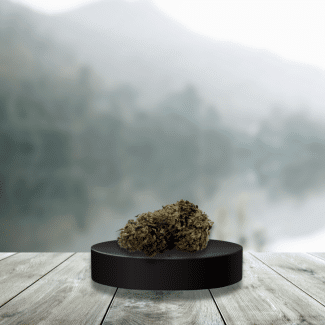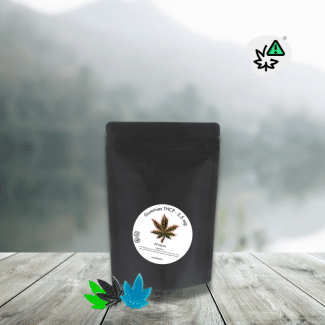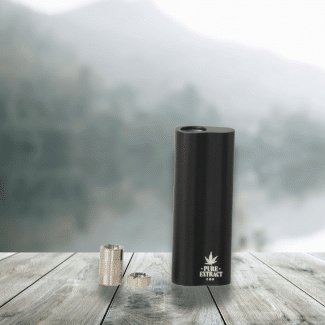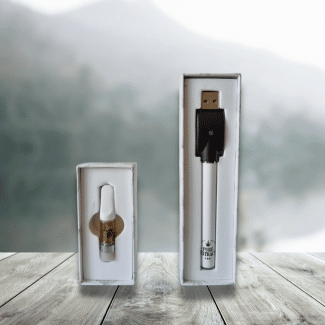THCP, or tetrahydrocannabiphorol, is a recently discovered cannabinoid that has been shown to be significantly more potent than THC (tetrahydrocannabinol). THCP interacts with the human endocannabinoid system, responsible for regulating various physiological and cognitive processes in the body.
When THCP binds to cannabinoid receptors in the body, it can produce effects such as pain relief, mood regulation and appetite stimulation.
THCP is available in France in a variety of product forms: vapes, flowers, resins and gummies.
⚠️ Important information: Following the ANSM announcement, there will be no restocking of this molecule.







